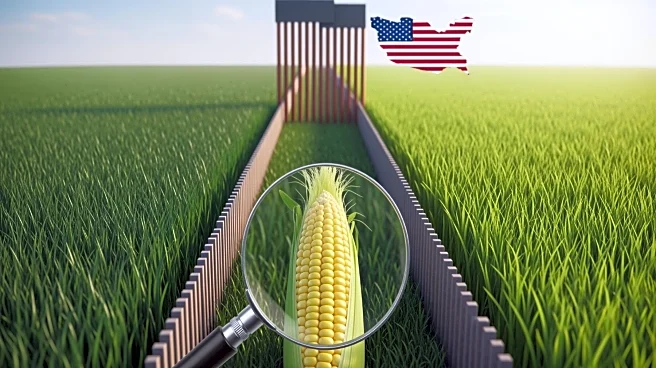What's Happening?
Mexico's agriculture minister, Julio Berdegue, is set to meet with U.S. Secretary of Agriculture Brooke Rollins in Washington to negotiate the reopening of the border for Mexican cattle imports. The border has
been closed since May due to an outbreak of the screwworm parasite, which poses a threat to livestock. The screwworm has spread northward through Central America and into Mexico, causing tension between the two countries. Mexico has reported cases in Nuevo Leon but claims they are contained. Meanwhile, President Trump is pushing for lower beef prices and has increased low-tariff imports of Argentine beef, which has upset U.S. ranchers.
Why It's Important?
The closure of the U.S.-Mexico border to cattle imports due to the screwworm outbreak has significant implications for the livestock industries in both countries. The parasite poses a serious threat to animal health and can lead to substantial economic losses. The negotiations between Mexican and U.S. officials are crucial for resolving trade disruptions and ensuring the safety of livestock. Additionally, President Trump's decision to increase Argentine beef imports to lower prices has sparked controversy among U.S. ranchers, highlighting the complexities of international trade and domestic agricultural policies.
What's Next?
The upcoming meeting between Mexican and U.S. agriculture officials may lead to an agreement on reopening the border for cattle imports, contingent on effective measures to control the screwworm outbreak. The outcome of these discussions could impact trade relations and the livestock sectors in both countries. U.S. ranchers may continue to express concerns over increased Argentine beef imports, potentially influencing future policy decisions. Stakeholders will be closely monitoring the situation for developments that could affect market dynamics and agricultural practices.











